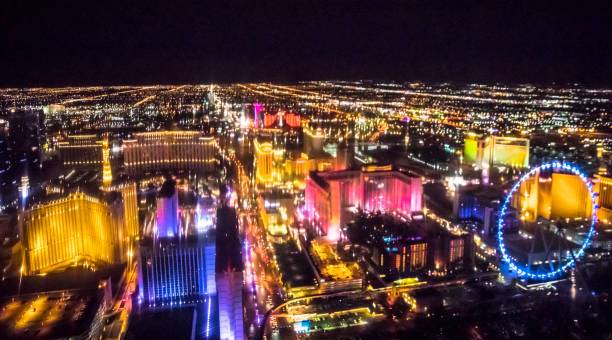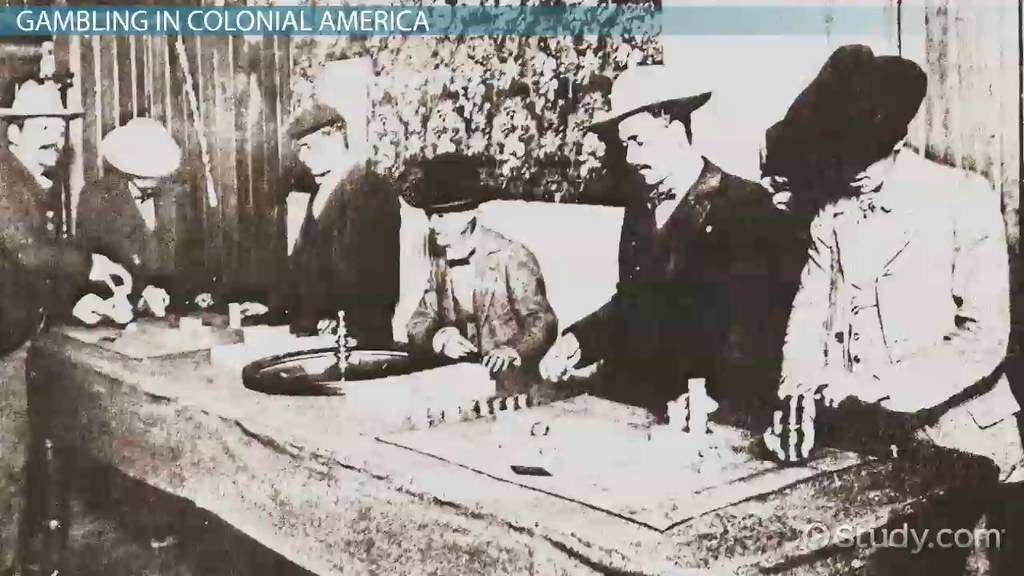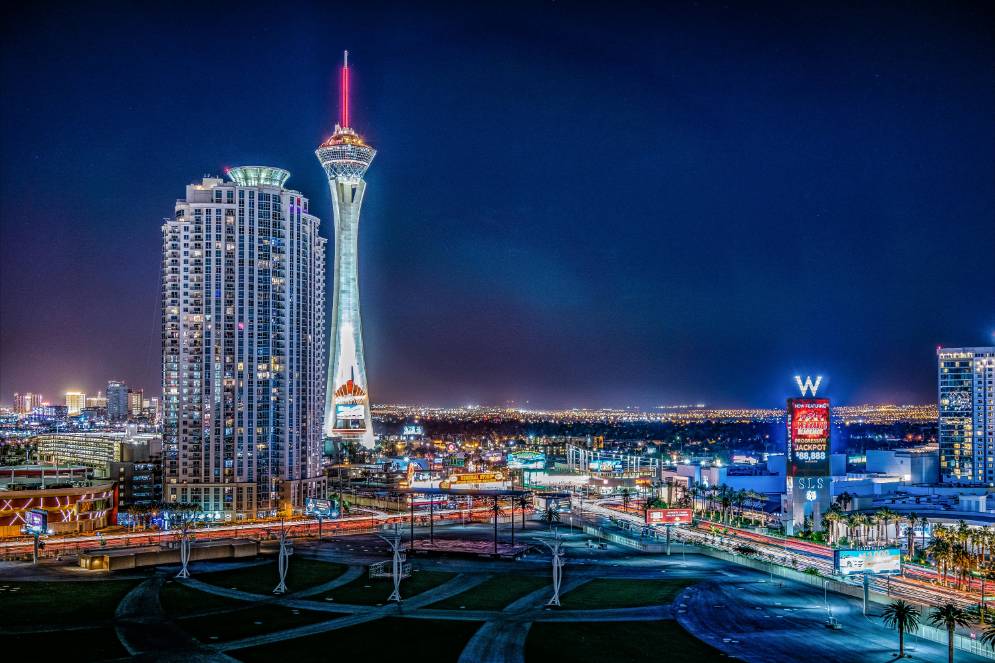 Anita Singh
Anita Singh
Roulette is one of the most iconic and recognizable casino games in the world, but not all roulette wheels are created equal. Two versions dominate the global gambling scene: American Roulette and European Roulette. While both share the same thrilling gameplay of spinning a wheel and betting on outcomes, they differ in design, odds, and player experience. In the United States, where gambling culture is deeply tied to Las Vegas and Atlantic City, American Roulette has historically reigned supreme. However, with the rise of online casinos, U.S. players now have more access than ever to European Roulette as well. This raises the question: which version do American players actually prefer in 2025? To answer that, we need to dive into their history, mechanics, house edges, player psychology, and cultural influence.***The Historical Background of Roulette in AmericaRoulette originated in 18th-century France, inspired by Blaise Pascal’s experiments with perpetual motion. The early wheels had both single zero and double zero pockets, but European casinos eventually phased out the double zero, creating what is now known as European Roulette. When the game crossed the Atlantic in the 19th century, American casinos deliberately brought back the double zero, giving birth to American Roulette. The addition of the 00 increased the house edge, making the game more profitable for operators. This version became a fixture in Las Vegas, Atlantic City, and other U.S. gambling hubs. For decades, American players grew accustomed to the double-zero wheel, cementing it as the “standard” roulette in the United States.***American Roulette: Features and GameplayAmerican Roulette wheels have 38 pockets: numbers 1–36, plus a single zero (0) and a double zero (00). This additional green pocket creates higher odds in favor of the casino. The layout of the betting table also reflects this difference, with special bets tied to the double zero. Gameplay is simple and identical in format to European Roulette: players place bets on single numbers, groups of numbers, or characteristics like red/black or odd/even, then the dealer spins the wheel and releases the ball. The presence of the double zero, however, changes the probabilities and payouts, tilting them slightly more toward the house.***European Roulette: Features and GameplayEuropean Roulette uses a 37-pocket wheel: numbers 1–36 plus a single zero (0). Without the double zero, the odds improve significantly for players, resulting in a house edge of 2.7% compared to 5.26% in American Roulette. The table layout is slightly different as well, particularly with the “call bets” or “announced bets” that are more common in European play. These bets cover specific sections of the wheel, like Voisins du Zéro, Tiers du Cylindre, and Orphelins, adding a strategic layer often appreciated by experienced gamblers. European Roulette is widely regarded as the “fairer” version, which explains its popularity in Europe and in international online casinos.***The Mathematical Differences: House Edge and Player OddsThe key distinction between the two versions lies in mathematics. In American Roulette, the double zero increases the house edge to 5.26%. For every $100 wagered over time, players statistically lose $5.26. In European Roulette, the house edge drops to 2.7%, meaning players lose only $2.70 per $100 wagered. While this may seem like a small difference, it has a massive impact over long gaming sessions. For professional gamblers and strategy-focused players, the European wheel is the clear choice. Casual players in the U.S., however, often overlook this detail, focusing instead on the thrill and familiarity of the American version.***Why American Roulette Dominates U.S. CasinosThe dominance of American Roulette in U.S. casinos is not accidental. Casino operators prefer it because the higher house edge ensures greater profitability. Over decades, players have come to associate the double-zero wheel with the glamour of Las Vegas. In fact, for many tourists, playing American Roulette is part of the quintessential Vegas experience. Casino marketing, Hollywood films, and cultural imagery have reinforced this preference. For instance, when you picture a tuxedo-clad gambler dramatically pushing chips onto a number in a Vegas movie scene, chances are the wheel shown is American Roulette.***The Online Casino Revolution: European Roulette Enters the U.S. MarketWith the expansion of online gambling in the United States, European Roulette has made major inroads. Most online platforms offer both American and European versions, giving players the freedom to choose. Unsurprisingly, many U.S. players are now gravitating toward European Roulette after discovering its better odds. Live dealer games streamed from European studios often feature single-zero wheels, exposing American gamblers to a version that was once hard to find in physical U.S. casinos. This shift has created a fascinating divide: while traditional brick-and-mortar players still prefer American Roulette, online players increasingly lean toward the European variant.***Psychological Factors: Familiarity vs. ValueAmerican players’ preferences often come down to psychology. Many older players stick with American Roulette simply because it’s what they’ve always known. The visual layout, the double zero, and the cultural association with Vegas create a sense of nostalgia and authenticity. On the other hand, younger and more tech-savvy players, who tend to research odds and strategies online, are more likely to favor European Roulette. For them, the appeal lies in maximizing value and minimizing losses. This generational divide highlights how personal experience and knowledge shape preferences between the two versions.***The Impact of Strategy on PreferencesRoulette is largely a game of chance, but players often bring strategies to the table, such as the Martingale, Fibonacci, or Labouchere systems. These strategies tend to perform better with lower house edges, making European Roulette the more logical choice. For example, doubling down after losses (the Martingale) is less punishing when the house edge is 2.7% rather than 5.26%. American Roulette, with its higher edge, makes these systems riskier in the long run. Players who value strategy and bankroll management tend to prefer European Roulette, while those focused on short-term thrills may stick with the American wheel.***Cultural Influence: Las Vegas vs. Monte CarloCulture also plays a huge role in preference. American Roulette is tied to the image of Las Vegas, with its neon lights, casino floors, and Hollywood portrayals. European Roulette, meanwhile, is associated with Monte Carlo, sophistication, and high-class European casinos. American players often choose based on the atmosphere they want to emulate. Tourists in Las Vegas are likely to play American Roulette for the full experience, while online players who dream of European elegance may gravitate toward the single-zero version. This cultural distinction ensures that both versions will continue to coexist in the American gambling market.***Future Trends: Which Version Will Dominate?Looking ahead, the U.S. market is unlikely to see one version completely replace the other. American Roulette will remain the dominant choice in physical casinos, where tradition and familiarity matter most. European Roulette, however, will continue to gain traction in the online sphere, where informed players seek better odds. Hybrid offerings may also emerge, with some U.S. casinos introducing European wheels to appeal to high rollers and international tourists. By 2030, we may see a more balanced presence of both versions, with players freely switching depending on context—Vegas trips for American Roulette, online play for European Roulette.***ConclusionSo, which version do U.S. players prefer? The answer is both. In physical casinos like Las Vegas and Atlantic City, American Roulette remains king, beloved for its cultural significance and longstanding dominance. Online, however, European Roulette is rapidly growing in popularity thanks to its lower house edge and wider availability. Ultimately, the choice comes down to what players value more: the nostalgic thrill of tradition or the mathematical advantage of better odds. One thing is certain—whether single zero or double zero, roulette will continue to spin its way into the hearts of U.S. players for generations to come.
By Anita Singh · 06 Oct 2025

In the past two decades, the gambling landscape in the United States has undergone a transformation unlike anything seen before. Once confined to neon-lit casino floors in Las Vegas or Atlantic City, games of chance such as roulette have now moved into the digital age. Among the many games that found their way online, roulette has managed to secure a special place in the hearts of American gamblers. Known for its iconic spinning wheel and the suspense that builds as the ball makes its final jump, roulette embodies the essence of chance, risk, and entertainment. The rise of online roulette in the USA represents not just a change in gambling platforms but a broader cultural shift in how Americans interact with games of chance, technology, and regulation. This article explores the journey of roulette from casino floors to digital screens, the technological innovations that fuel its popularity, the laws that shape its growth, and the social and cultural factors that continue to drive its expansion.***From Casino Floors to Digital ScreensRoulette first entered American culture through the glamorous casinos of New Orleans in the 19th century before finding a permanent home in Las Vegas and Atlantic City. For decades, the roulette table symbolized luxury, exclusivity, and excitement. But as the internet began to dominate entertainment in the late 1990s and early 2000s, gambling operators recognized the opportunity to bring their most beloved games online. Early versions of online roulette were simplistic, offering digital wheels and limited features. Yet even these primitive platforms caught the imagination of players who no longer needed to travel thousands of miles to place a bet on red or black.By the 2010s, technological improvements had taken online roulette to new heights. High-definition graphics, real-time animations, and mobile compatibility brought the game closer to the casino experience than ever before. This shift democratized roulette, making it available to people in states far from traditional casino hubs. The accessibility of the game on smartphones and tablets also allowed Americans to play roulette during commutes, at home, or even during social gatherings, fundamentally reshaping how the game fit into daily life.***The Allure of the Wheel: Why Americans Love Online RouletteRoulette’s enduring popularity lies in its perfect balance between simplicity and suspense. Unlike poker, which demands complex strategies, or blackjack, which requires mathematical precision, roulette is universally approachable. At its core, it involves making a choice—red or black, odd or even, single numbers or groups—and letting fate decide. This ease of understanding makes it appealing to casual players, while the variety of betting options keeps experienced gamblers engaged.In its online form, roulette offers Americans added layers of attraction. Digital platforms frequently provide bonuses and promotions—free spins, matched deposits, loyalty rewards—that make the experience feel more rewarding than a traditional casino visit. Furthermore, online roulette tables often allow for lower minimum bets than physical casinos, making it more inclusive for players who might not be ready to risk large sums. The accessibility and affordability of online roulette align perfectly with American gambling culture, where entertainment often blends with the dream of hitting big.***Technological Innovations Behind Online RouletteTechnology has been the engine behind online roulette’s explosion in the U.S. market. Software developers have worked tirelessly to replicate not just the look of the roulette wheel but the feel of a casino environment. Random Number Generator (RNG) technology ensures fairness and unpredictability, while advanced algorithms simulate the mechanics of a spinning wheel and bouncing ball.Perhaps the biggest breakthrough has been live dealer roulette. Using high-definition cameras and professional dealers broadcasting in real time, live roulette brings the authenticity of a casino floor to players’ screens. Chat functions allow gamblers to interact with dealers and fellow players, recreating the social atmosphere that makes roulette so engaging.Looking ahead, innovations in Virtual Reality (VR) and Augmented Reality (AR) promise to revolutionize the experience further. Imagine donning a VR headset and finding yourself standing at a roulette table in a digital recreation of the Bellagio in Las Vegas. These immersive technologies are already being tested and could soon redefine what Americans expect from online gambling platforms.***Legal Landscape and Regulation in the USAThe rise of online roulette cannot be understood without examining the complex legal framework that governs gambling in the United States. For much of the 20th century, online gambling existed in a legal gray area, with strict federal laws limiting its expansion. However, in 2018, the Supreme Court struck down the Professional and Amateur Sports Protection Act (PASPA), a decision that opened the door for states to legalize online gambling on their own terms.States like New Jersey, Pennsylvania, Michigan, and Delaware quickly embraced the opportunity, launching licensed online casinos that included roulette among their offerings. These platforms operate under strict regulatory oversight, ensuring fairness, transparency, and protections for consumers. Regulations require casinos to implement responsible gambling tools, such as self-exclusion options and spending limits, helping to address concerns about problem gambling.While progress has been made, the expansion of online roulette remains uneven. States such as Nevada, ironically the gambling capital of the world, have limited online casino options, focusing instead on sports betting. Other states, including California and Texas, continue to debate legalization. As more states witness the tax revenue generated by legalized online gambling, it is expected that the availability of online roulette will expand nationwide.***Cultural Impact and Pop Culture PresenceRoulette has always carried a certain cultural mystique. Hollywood movies from the mid-20th century often featured roulette scenes, portraying the game as the epitome of sophistication and risk-taking. These portrayals left a lasting imprint on American culture, making roulette synonymous with glamour and high stakes.Online roulette has extended this cultural footprint into the digital age. Social media influencers and streaming platforms such as Twitch now showcase live roulette sessions, blending gambling with entertainment content. This exposure has brought roulette to younger audiences who may never have stepped inside a physical casino. The crossover between gambling, entertainment, and digital content reflects the broader cultural shift toward online experiences.***Roulette as a Social Experience in the Digital EraOne of the key factors in roulette’s enduring appeal is its social nature. In physical casinos, crowds gather around roulette tables, sharing the suspense of the spinning ball. Online roulette has successfully replicated this experience through live chat features, multiplayer modes, and community-based tournaments.For many American players, roulette is less about individual winnings and more about the shared anticipation that comes with every spin. Digital platforms understand this and continue to design features that foster interaction, making online roulette not just a solitary pastime but a communal event. This reflects broader trends in American digital culture, where people seek connection and shared experiences even in virtual spaces.***The Economics of Online Roulette in the USAThe economic impact of online roulette in the United States is substantial. Licensed online casinos generate millions in revenue each year, with roulette often ranking among the top table games in popularity. For states like New Jersey and Pennsylvania, online gambling taxes have provided crucial revenue streams, funding everything from education to infrastructure projects.For players, the economics of online roulette are also attractive. Lower betting minimums, frequent bonuses, and loyalty programs mean that players often feel they are getting more value for their money compared to traditional casinos. However, the profitability of roulette for operators is undeniable, especially when considering the higher house edge of American Roulette with its double zero compared to European Roulette. This balance between player satisfaction and operator profit ensures roulette’s place as a cornerstone of the online gambling ecosystem.***Challenges and ConcernsDespite its many positives, the rise of online roulette in the USA has not been without challenges. Concerns about problem gambling, underage access, and financial risks remain significant. Regulators and operators have responded with tools such as mandatory identity verification, deposit limits, and educational campaigns about responsible gambling. Still, critics argue that the accessibility of online gambling makes it harder to control addictive behaviors compared to land-based casinos.Another challenge lies in cybersecurity. Online casinos are attractive targets for hackers, and protecting players’ financial and personal information is paramount. Leading operators invest heavily in encryption, fraud detection, and secure payment methods, but the threat remains an ongoing concern.***Future of Online Roulette in the USAThe future of online roulette in the United States appears bright, fueled by technological innovation, regulatory evolution, and cultural acceptance. As more states legalize online casinos, access to roulette will expand, bringing the game to millions of new players. Virtual reality and artificial intelligence could enhance personalization, tailoring roulette experiences to individual player preferences.In addition, the growing popularity of cryptocurrency and blockchain technology could further transform online roulette. Some platforms already accept Bitcoin and other digital currencies, offering faster, more secure transactions. Blockchain technology also promises greater transparency, potentially increasing trust among skeptical players.***ConclusionThe rise of online roulette in the USA is a story of tradition meeting technology. From its origins on the glamorous casino floors of Las Vegas to its current presence on digital screens across the nation, roulette has adapted and thrived in every era. Its simplicity, suspense, and cultural allure make it timeless, while innovations in technology and regulation continue to propel it into the future.As America continues its digital transformation, online roulette will remain not just a game of chance but a symbol of the country’s evolving relationship with entertainment, risk, and technology. For millions of Americans, the thrill of watching the wheel spin—whether in a casino or on a smartphone—will continue to define the essence of gambling in the digital age.
By Anita Singh · 01 Oct 2025

Casino tourism has become one of the defining features of the United States’ hospitality and entertainment industry. Travelers from across the globe flock to iconic destinations such as Las Vegas, Atlantic City, and Native American casinos, not only for gambling but also for the world-class resorts, luxury dining, high-profile entertainment, and cultural experiences that surround them. In 2025, casino tourism stands as a symbol of America’s ability to merge gaming, leisure, and spectacle into one unforgettable adventure.***Las Vegas: The World’s Casino CapitalNo discussion of casino tourism is complete without Las Vegas. Known as the “Entertainment Capital of the World,” Vegas attracts millions of international visitors each year who come for its legendary Strip. Beyond the casinos themselves, Las Vegas offers extravagant stage shows, celebrity-chef restaurants, luxury shopping, and nightlife that lasts until dawn. In 2025, the city continues to expand with high-tech gaming floors, esports arenas, and immersive digital attractions, ensuring its place as the ultimate casino destination for global travelers.***Atlantic City: The East Coast RivalAtlantic City, often called the “Vegas of the East,” has carved out its own niche in casino tourism. Visitors from Europe, Canada, and South America come to experience its iconic Boardwalk, oceanfront resorts, and gaming culture. While smaller than Las Vegas, Atlantic City’s appeal lies in its blend of seaside relaxation and casino excitement. In 2025, major resorts like Borgata and Hard Rock are enhancing their luxury offerings to attract an even wider international audience.***Native American Casinos and Cultural TourismBeyond the big-name destinations, Native American casinos across the country—from Connecticut’s Mohegan Sun and Foxwoods to Oklahoma’s WinStar World Casino—play a crucial role in attracting both domestic and international visitors. These resorts combine massive gaming floors with cultural showcases, fine dining, concerts, and sporting events. Many tourists are drawn not just for gambling but also for the chance to experience Native American hospitality and traditions, adding a cultural dimension to their trip.***Luxury Resorts as Tourist MagnetsModern casino tourism goes far beyond slot machines and blackjack tables. Resorts like The Venetian, Bellagio, Wynn, and Resorts World have transformed into luxury hubs where gaming is only one part of the appeal. Guests come for spa retreats, rooftop pools, designer boutiques, and fine art exhibitions. These properties function as full-service destinations where international visitors can enjoy both relaxation and thrill, ensuring their global appeal remains strong in 2025.***Entertainment as a Driving ForceEntertainment is one of the most powerful draws for casino tourists. International travelers often plan trips around headline concerts, residencies, and shows featuring global superstars. From Cirque du Soleil in Las Vegas to live performances at Mohegan Sun, casinos have become cultural venues as much as gaming hubs. In 2025, advanced stage technology and interactive shows are making these experiences more immersive, reinforcing casinos as must-visit destinations.***Economic Impact of Casino TourismCasino tourism is more than just leisure—it’s a major contributor to the U.S. economy. Millions of visitors bring billions of dollars in revenue through gaming, hotels, dining, shopping, and entertainment. Entire cities, like Las Vegas and Atlantic City, rely heavily on casino tourism to thrive, while Native American communities use revenue to fund education, healthcare, and cultural preservation. International tourism also ensures a steady flow of foreign investment into the U.S. hospitality sector.***Emerging Casino DestinationsWhile Las Vegas and Atlantic City dominate, new casino hubs are emerging across the United States. States such as Florida, Mississippi, and Oklahoma are attracting increasing numbers of international tourists through large-scale resorts. Tribal casinos in the Midwest and West are also expanding their global reach, offering experiences that combine gaming with unique cultural and regional flavors.***The Role of Technology in Casino TourismBy 2025, technology plays a huge role in shaping the casino tourism experience. Cashless gaming, virtual reality attractions, AI-driven concierge services, and hybrid online-offline gaming platforms are all part of the modern casino resort. These innovations appeal to younger international travelers who value seamless digital experiences alongside traditional gaming excitement.***ConclusionCasino tourism in the United States has grown into a global phenomenon, attracting millions of international visitors every year. From the bright lights of Las Vegas to the cultural richness of Native American resorts and the coastal charm of Atlantic City, America’s casinos offer more than gambling—they offer full-scale luxury, entertainment, and cultural immersion. In 2025, with innovation and expansion leading the way, U.S. casino tourism continues to set the global standard for gaming and hospitality.
By Anita Singh · 07 Oct 2025

When it comes to casino gaming in the United States, two destinations stand out above all others: Las Vegas, Nevada, and Atlantic City, New Jersey. Both cities have rich gambling histories, vibrant entertainment scenes, and iconic reputations as hubs for chance and fortune. But while they share similarities, they also offer very different experiences for visitors. Here’s how America’s two casino capitals compare side by side.***A tale of two originsLas Vegas rose from the desert in the early 20th century, fueled by legalized gambling in 1931 and the development of massive resorts along what became the Las Vegas Strip. Atlantic City’s gambling history began much later, in 1976, when New Jersey voters approved casino gaming to revitalize the struggling seaside town. The timing shaped each city’s identity: Vegas became the glitzy global capital of gambling, while Atlantic City evolved into an East Coast alternative.***Casino variety and scaleLas Vegas boasts over 140 casinos, with dozens lining the Strip in dazzling, resort-style complexes. These venues offer thousands of slot machines, endless table games, poker rooms, and high-limit VIP lounges. Atlantic City, by contrast, is more compact, featuring nine major casinos clustered along the famous Boardwalk and Marina District. While smaller, Atlantic City’s casinos still offer a robust selection, often with a more approachable, less overwhelming feel compared to Vegas’s mega-resorts.***Entertainment beyond gamblingVegas has built a reputation as an all-in-one entertainment capital. Visitors come not only to gamble but also to see world-class shows, dine at celebrity-chef restaurants, attend music residencies, and enjoy sprawling nightlife. Atlantic City has entertainment as well—concerts, comedy acts, festivals, and Boardwalk attractions—but it leans more toward regional visitors seeking a shorter, gambling-focused getaway rather than a multi-day luxury vacation.***Atmosphere and cultureLas Vegas thrives on extravagance. Neon lights, towering hotels, and themed resorts (from the Venetian canals to Paris’s Eiffel Tower replica) create a larger-than-life atmosphere. Atlantic City feels more grounded, with its oceanfront setting and historic Boardwalk offering a nostalgic charm. Vegas caters to international tourists and bachelor parties; Atlantic City often draws East Coast locals, weekenders, and loyal casino-goers.***Accessibility and travelLas Vegas is a global destination with McCarran International Airport (now Harry Reid International) connecting directly to cities worldwide. It thrives on tourism, conventions, and international visitors. Atlantic City, however, is most accessible to travelers from the Northeast Corridor—New York, Philadelphia, and Washington, D.C.—often arriving by car, bus, or short train ride. This makes Atlantic City more regional, while Las Vegas is distinctly international.***Gaming revenue and economicsLas Vegas consistently generates higher gaming revenues, often exceeding billions of dollars annually thanks to its massive casino infrastructure and global tourist base. Atlantic City, while profitable, has faced ups and downs, particularly during competition from neighboring states’ casinos. Still, its importance to New Jersey’s economy is significant, and it remains one of the largest gambling destinations in the U.S. outside Nevada.***Sports betting and new trendsSince the legalization of sports betting in 2018, both cities have embraced sportsbooks. Las Vegas, already long associated with sports wagering, remains a leader with high-tech betting lounges. Atlantic City has also capitalized, with sportsbooks integrated into its casinos, supported by New Jersey’s booming online betting market. In fact, New Jersey often surpasses Nevada in monthly sports betting handle, showing how the East Coast hub has become a powerhouse in the digital betting age.***Tourist demographicsVegas attracts a mix of international visitors, high-rollers, and casual tourists seeking bucket-list experiences. Atlantic City skews more regional, with many visitors making day trips or weekend stays. While Vegas has become a destination for global travelers, Atlantic City maintains a loyal customer base, particularly among East Coast gamblers who prefer a convenient escape without cross-country flights.***Challenges facedBoth cities have had to navigate challenges. Las Vegas has reinvented itself multiple times, moving from mob-run gambling dens to corporate resorts, and more recently pivoting to become a sports capital with NFL, NHL, and Formula 1 events. Atlantic City has struggled with casino closures, economic downturns, and competition from nearby states. Yet, both continue to adapt and remain central to America’s gambling identity.***Which one is right for you?If you’re looking for over-the-top luxury, iconic shows, and the full global gambling experience, Las Vegas is unmatched. If you prefer a smaller, more nostalgic casino atmosphere with the charm of an oceanfront boardwalk, Atlantic City might be your pick. Many gamblers and travelers enjoy both, appreciating their unique identities.***ConclusionLas Vegas and Atlantic City are both pillars of America’s casino culture, but they shine in different ways. Vegas dazzles with scale, spectacle, and international appeal, while Atlantic City offers regional charm, accessibility, and historic boardwalk fun. Together, they represent two sides of the same coin—the thrill of casino life, whether in the desert or by the sea.
By Anita Singh · 02 Oct 2025

Every spring, the NCAA Men’s Basketball Tournament—better known as March Madness—captures the attention of sports fans across the United States. But beyond the buzzer-beaters and Cinderella stories lies another phenomenon: betting. March Madness has become one of the largest gambling events in America, generating billions of dollars in wagers each year and ranking second only to the Super Bowl in betting popularity.***The Scale of March Madness BettingAccording to the American Gaming Association, more than $15 billion was wagered on March Madness in recent years, both legally and illegally. Millions of Americans participate in office pools, filling out brackets with hopes of predicting the perfect outcome. Others turn to sportsbooks, where betting ranges from game outcomes to individual player performances. The sheer number of games—67 in total—creates endless opportunities for wagering, fueling the tournament’s reputation as a gambler’s paradise.***The Bracket PhenomenonPerhaps the most unique aspect of March Madness betting is the bracket challenge. Fans across the country attempt to predict every game in the tournament, from the opening round to the championship. While the odds of completing a perfect bracket are astronomically low—1 in 9.2 quintillion—this hasn’t stopped millions from trying each year. Companies, media outlets, and online platforms have turned bracket challenges into a cultural tradition, making them one of the most accessible forms of betting in America.***Legal Sports Betting and the NCAA TournamentSince the Supreme Court struck down PASPA in 2018, legalized sports betting has exploded across the United States, and March Madness has been one of the biggest beneficiaries. States with regulated markets see massive spikes in betting volume during the tournament, with sportsbooks reporting record numbers each year. The accessibility of mobile apps has further fueled this growth, allowing fans to place bets instantly while watching games in real time.***Why March Madness Is Perfect for BettingThe structure of the NCAA tournament makes it ideal for betting. With 68 teams entering the competition and constant upsets, the unpredictability is part of the appeal. Fans love betting on underdogs, rooting for lower-seeded teams to shock the giants. The single-elimination format means every game matters, and with so many games played over a short period, the action is nonstop. For gamblers, this creates an adrenaline-fueled experience unmatched by other sporting events.***The Rise of Prop Bets and Live WageringMarch Madness betting has gone far beyond just picking winners. Today, sportsbooks offer a variety of proposition bets, from how many points a star player will score to which team will reach the Final Four. Live wagering has added even more excitement, letting fans bet on outcomes as games unfold. The constant shifts in momentum during college basketball make live betting especially popular, keeping fans glued to their screens throughout the tournament.***The Economic Impact of March Madness BettingThe financial ripple effects of March Madness betting extend far beyond sportsbooks. Casinos, bars, and restaurants see surges in business during the tournament, while media companies profit from increased advertising tied to betting platforms. State governments also benefit, collecting millions in tax revenue from legal wagers. This economic boom makes March Madness one of the most important sporting events of the year—not just for fans, but for businesses nationwide.***Concerns and ControversiesDespite its popularity, March Madness betting raises concerns. The NCAA has historically opposed gambling, citing risks to the integrity of the sport. Player suspensions and investigations into betting-related scandals highlight the challenges of managing such a massive industry. Additionally, the accessibility of mobile betting raises questions about problem gambling, especially among younger fans drawn into bracket pools and online wagers.***March Madness vs. the Super BowlWhile the Super Bowl generates more betting per event, March Madness dominates in terms of overall volume due to its length and number of games. The tournament spans several weeks, giving fans sustained opportunities to place bets. The combination of brackets, single-game wagers, and prop bets ensures that March Madness stands alongside the Super Bowl as one of the twin pillars of U.S. sports betting.***ConclusionMarch Madness betting has evolved into a billion-dollar industry that blends tradition, unpredictability, and entertainment. From office pools to mobile apps, the tournament offers something for casual fans and serious gamblers alike. Its unique structure, cultural traditions like the bracket challenge, and legalization of sports betting have turned March Madness into one of the defining gambling events in America. As legalized wagering expands further, March Madness will only continue to grow as a cornerstone of U.S. sports betting culture.
By Anita Singh · 04 Oct 2025

Powerball and Mega Millions are the two biggest lottery games in the United States, known for producing some of the largest jackpots in history. Over the years, countless Americans have become overnight millionaires, but a few winners have stood out for the size of their prize, their personal stories, or the way their lives changed after the win. These are the most famous winners who captured the nation’s attention.***Mavis Wanczyk – The $758 Million Powerball WinnerIn 2017, Mavis Wanczyk, a hospital worker from Massachusetts, made headlines when she won $758 million in Powerball—the largest single-ticket jackpot at the time. She quit her job immediately after learning she had won and became a symbol of the life-changing potential of lotteries. Her down-to-earth story and massive win made her one of the most famous lottery winners in America.***The $1.586 Billion Powerball Jackpot (2016)The 2016 Powerball jackpot remains legendary as the biggest lottery payout in the world—$1.586 billion. The prize was split among three winning tickets from California, Florida, and Tennessee. Each ticket holder received hundreds of millions, making them instant celebrities. The scale of this win shocked the nation and brought global attention to the American lottery system.***Richard Lustig – The Man Who Won Seven TimesRichard Lustig isn’t known for winning the biggest jackpot, but for his incredible streak of winning the lottery seven times. A Florida resident, Lustig won millions over the years and even wrote a book teaching his strategies. His unusual success story made him one of the most recognizable names in U.S. lottery history.***Gloria Mackenzie – The $590 Million Powerball WinnerIn 2013, 84-year-old Gloria Mackenzie from Florida won $590 million in Powerball after purchasing a quick-pick ticket. Her age, modest background, and the sheer size of her win made headlines across the country. She chose the lump-sum payout, instantly becoming one of the wealthiest lottery winners in American history.***The $1.537 Billion Mega Millions Jackpot (2018)The Mega Millions jackpot of 2018 set another world record—$1.537 billion. A single anonymous winner in South Carolina claimed the prize, making it the largest single-ticket payout in history. While the identity of the winner was never revealed, the mystery itself made the story one of the most talked-about events in lottery history.***Jack Whittaker – The $315 Million Powerball WinnerIn 2002, Jack Whittaker from West Virginia won $315 million in Powerball, one of the largest prizes at the time. Already a wealthy businessman, his story became infamous after his winnings led to personal struggles and controversies. Whittaker’s story became a cautionary tale, showing that massive wealth can also bring unforeseen challenges.***The $1.337 Billion Mega Millions Jackpot (2022)In July 2022, a ticket sold in Illinois matched all the winning numbers for a $1.337 billion Mega Millions jackpot. Like the South Carolina winner in 2018, the lucky player chose to remain anonymous. This massive win added another historic chapter to the growing list of billion-dollar jackpots in America.***Brothers from New Jersey – The $390 Million Mega Millions JackpotIn 2007, two brothers from New Jersey shared a $390 million Mega Millions prize. Their story of family unity and joint fortune resonated with Americans, showing that sometimes luck doesn’t just change one life, but an entire family’s future.***ConclusionFrom billion-dollar records to unforgettable personal stories, the most famous Powerball and Mega Millions winners in America remind us why these lotteries captivate the nation. Some winners embrace luxury, others remain humble, and a few face challenges, but all of them share one thing in common—the life-changing moment of holding a winning ticket. Their stories ensure that every drawing, no matter how unlikely, keeps millions of Americans dreaming of what could be.
By Anita Singh · 08 Oct 2025

The United States is home to some of the most iconic casino destinations in the world, and with them, some of the biggest jackpot wins in history. From the glittering lights of Las Vegas to the bustling boardwalks of Atlantic City, certain cities have become synonymous with life-changing payouts. These places are not just gambling hubs—they are the stages where ordinary people have experienced extraordinary fortune. Let’s take a journey through America’s top jackpot-producing cities and explore why they continue to attract millions of hopeful gamblers each year.***Las Vegas: The Jackpot Capital of the WorldWhen it comes to massive wins, Las Vegas stands alone. Nicknamed the "Entertainment Capital of the World," Vegas casinos have hosted the largest slot jackpots ever recorded. The $39.7 million Megabucks win at Excalibur in 2003 remains the biggest slot jackpot in history. Other legendary wins, such as Cynthia Jay-Brennan’s $34.9 million at the Desert Inn and a $27.6 million payout at Palace Station, have cemented Vegas as the ultimate city of dreams. Beyond the money, Las Vegas offers an atmosphere of excitement, with every spin carrying the promise of history-making fortune.***Reno: The Biggest Little City with Big WinsOften overshadowed by Las Vegas, Reno has its own legacy of jackpot legends. Known as the "Biggest Little City in the World," Reno’s casinos have produced multimillion-dollar winners on progressive slots and video poker. Though smaller in scale than Vegas, Reno remains a beloved destination for players seeking big payouts with a more intimate casino experience. Many locals tell stories of unexpected millionaires walking out of Reno casinos, proving that big jackpots aren’t just limited to the Strip.***Atlantic City: The East Coast’s Jackpot HavenWhile Las Vegas may dominate the jackpot spotlight, Atlantic City holds its own as a premier gambling destination. In 2011, a player at the Borgata Hotel Casino & Spa hit a jackpot of nearly $10.3 million, the largest in the city’s history. With its vibrant boardwalk and historic casinos, Atlantic City continues to be the crown jewel of East Coast gaming. The city attracts millions of visitors from New York, Philadelphia, and beyond, all chasing the chance to join its list of jackpot legends.***Tunica, Mississippi: A Southern SurpriseThough not as famous as Vegas or Atlantic City, Tunica has built a reputation as the "South’s Casino Capital." In the 1990s and early 2000s, Tunica casinos frequently made headlines with million-dollar slot winners. Many tourists flocked to the Mississippi River town for a taste of Vegas-style excitement with a Southern twist. Jackpot stories from Tunica highlight that big wins can happen anywhere, not just in the most famous casino destinations.***Native American Casinos: Jackpot Stories Across the CountryNative American casinos across the U.S. have also contributed to the country’s jackpot lore. From Foxwoods in Connecticut to WinStar World Casino in Oklahoma, tribal casinos have hosted massive payouts worth millions. These venues not only provide entertainment but also support local communities, making their jackpot stories even more meaningful. Wins in these casinos have shown that jackpot legends are a nationwide phenomenon, not confined to just a few major cities.***The Rise of Online Casinos in the U.S.In recent years, online casinos have begun creating their own jackpot legends in states where online gambling is legal. Players in New Jersey, Michigan, and Pennsylvania have won hundreds of thousands—and sometimes millions—through progressive online slots. While online wins may lack the flashing lights of a casino floor, they deliver the same life-changing thrill, proving that America’s jackpot culture is evolving with technology.***Why These Cities Keep Producing LegendsThe cities most associated with jackpot legends share a few things in common: vibrant casino cultures, large numbers of visitors, and progressive jackpot machines capable of reaching astronomical amounts. Whether it’s the glitz of Las Vegas, the history of Atlantic City, or the regional charm of places like Reno and Tunica, these cities create the perfect backdrop for jackpot dreams. The more people play, the more stories are written—and the bigger the jackpots grow.***ConclusionFrom Las Vegas to Atlantic City, and from Reno to Tunica, America’s casino cities have produced legends that inspire millions of gamblers. Each jackpot story is more than just a payout; it’s a symbol of possibility and hope. As casinos continue to evolve—both in physical destinations and online platforms—new legends will be born, ensuring that the dream of hitting it big remains alive and well across the United States.
By Anita Singh · 03 Oct 2025